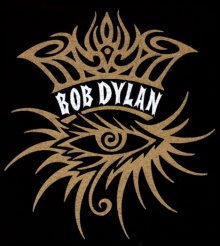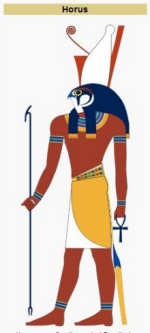
Bob Dylan: "Hey Mr. Tambourine Man" = ???
One featured clip is from an interview with Ed Bradley on 60 Minutes (2004). Bob Dylan candidly confesses to making a bargain to get where he is. His claim is validated by playing one of his early recordings backwards, where we hear striking testimony about the deal struck.
Bob Dylan: "Hey Mr. Tambourine Man" = "My new real master's Satan - yeah!"
This is less a warning to others that might be tempted to follow in Bob Dylan's path than to give those pause who have rejected the reality of Satan and his rule over cultural icons like Bob. There's not a lot of commentary in this post, but plenty to think about.
Here's the transcript of the featured portion of the interview:
Ed Bradley: Why do you still do it? Why are you still out here?
Bob Dylan: Well it goes back to that destiny thing. And how I made it, to bargain with it you know - a long time ago and I'm holdin' up my end.
Ed Bradley: What was your bargain?
Bob Dylan: To get where um I am now.
Ed Bradley: Should I ask who you made the bargain with?
Bob Dylan: Heh heh heh - With with whi whi well you know with the the chief guh ch-chief commander.
Ed Bradley: On this earth? Uhm uhm uhmBob Dylan: And in this earth and in uh in then in a world we can't see.
If you've followed Bob Dylan, you know Bob adopted a "Christian" identity in the late 70s and is presently most closely associated with conservative Judaism (Chabad Lubavitch). What god or gods is the enigmatic Robert Allen Zimmerman (aka Bob Dylan, who had his Bar Mitzvah in May, 1954) serving, if we accept that he is holding up his end of the bargain?
In 1997, Bob told David Gates of Newsweek the following: "Here's the thing with me and the religious thing. This is the flat-out truth: I find the religiosity and philosophy in the music. I don't find it anywhere else. Songs like "Let Me Rest on a Peaceful Mountain" or "I Saw the Light"—that's my religion. I don't adhere to rabbis, preachers, evangelists, all of that. I've learned more from the songs than I've learned from any of this kind of entity. The songs are my lexicon. I believe the songs."
If we accept that he believes the songs, should we believe what the symbols that he has chosen for his branding conceal and reveal?
 On right, from November, 2005, a concert in Balogna.
On right, from November, 2005, a concert in Balogna.
"Horus, an ancient Egyptian falcon headed-deity. Horus was usually depicted wearing the double crown of kingship, but also appeared in a fully falcon form, among others." (Wilkinson, Richard H. (2003). The complete gods and goddesses of ancient Egypt. London: Thames & Hudson.)
Is the identity of "Mr. Tambourine Man" revealed in Ezekiel 28?
From verse 13:
"...the workmanship of thy tabrets and of thy pipes was prepared in thee in the day that thou wast created."
11) Moreover the word of the LORD came unto me, saying, 12) Son of man, take up a lamentation upon the king of Tyrus, and say unto him, Thus saith the Lord GOD; Thou sealest up the sum, full of wisdom, and perfect in beauty. 13) Thou hast been in Eden the garden of God; every precious stone was thy covering, the sardius, topaz, and the diamond, the beryl, the onyx, and the jasper, the sapphire, the emerald, and the carbuncle, and gold: the workmanship of thy tabrets and of thy pipes was prepared in thee in the day that thou wast created.
 14) Thou art the anointed cherub that covereth; and I have set thee so: thou wast upon the holy mountain of God; thou hast walked up and down in the midst of the stones of fire. 15) Thou wast perfect in thy ways from the day that thou wast created, till iniquity was found in thee. 16) By the multitude of thy merchandise they have filled the midst of thee with violence, and thou hast sinned: therefore I will cast thee as profane out of the mountain of God: and I will destroy thee, O covering cherub, from the midst of the stones of fire. 17) Thine heart was lifted up because of thy beauty, thou hast corrupted thy wisdom by reason of thy brightness: I will cast thee to the ground, I will lay thee before kings, that they may behold thee. 18) Thou hast defiled thy sanctuaries by the multitude of thine iniquities, by the iniquity of thy traffick; therefore will I bring forth a fire from the midst of thee, it shall devour thee, and I will bring thee to ashes upon the earth in the sight of all them that behold thee. 19) All they that know thee among the people shall be astonished at thee: thou shalt be a terror, and never shalt thou be any more.
14) Thou art the anointed cherub that covereth; and I have set thee so: thou wast upon the holy mountain of God; thou hast walked up and down in the midst of the stones of fire. 15) Thou wast perfect in thy ways from the day that thou wast created, till iniquity was found in thee. 16) By the multitude of thy merchandise they have filled the midst of thee with violence, and thou hast sinned: therefore I will cast thee as profane out of the mountain of God: and I will destroy thee, O covering cherub, from the midst of the stones of fire. 17) Thine heart was lifted up because of thy beauty, thou hast corrupted thy wisdom by reason of thy brightness: I will cast thee to the ground, I will lay thee before kings, that they may behold thee. 18) Thou hast defiled thy sanctuaries by the multitude of thine iniquities, by the iniquity of thy traffick; therefore will I bring forth a fire from the midst of thee, it shall devour thee, and I will bring thee to ashes upon the earth in the sight of all them that behold thee. 19) All they that know thee among the people shall be astonished at thee: thou shalt be a terror, and never shalt thou be any more.(Ezekiel 18)

Interesting. Don't know if Bob Dylan is a tool of satan. Doubt it. Definitely Bob Dylan brings about an awareness of God. He's probably some sort of messenger.
ReplyDeleteHi Bob, I'm sure you've covered this before but 'programming' someone to hear what the reverse track is saying by writing it out on the screen or saying it ahead of actually hearing it has always been a problem for me. What is truly fascinating is Dylan's admission of a deal struck with something early in his music career which has brought him fame and fortune. What fascinates me is how this deal was struck! Did the devil come to him in the guise of a very forward thinking career manager and offer him the talent or the imagination? How was he assured of success? What is it about HIS music that has made him so succesful? How could this be accomplished ahead of time? What if no one liked his music? And what has he done to uphold his end of the bargain, has he distracted that many souls from the Way? He is obviously aware of the deal, and he doesn't look terribly comfortable talking about it! Does he regret what he's done? Is it too late for Bob Dylan? Can he renege on his deal, give up his fortune and follow Jesus like he knows he should? Judas 'knew' what he was doing and couldn't stand it afterwards. Are there people so destined to be instruments of evil, instuments of judgment, to further the agenda. These questions parallel the one's posed about the candy bar wrapper, about the imaginations of willing men and their use in this world. I wonder why Dylan chose to express these things and create the Horus image or why the designer of the candy wrapper chose the things he did?
ReplyDelete